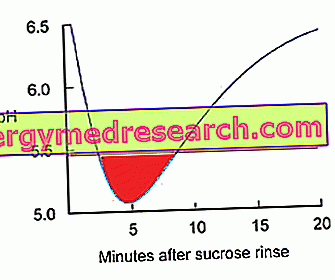
Osteonecrosis of the jaw is a serious disease that affects one or both jaw bones (jaw and jaw).
Osteonecrosis literally means "death of the bone". It is therefore easy to understand how mandibular osteonecrosis leads to infectious complications (osteomyelitis), with chronic ulceration of the oral mucosa and exposure of the underlying necrotic bone.
Recently the use of bisphosphonates (or bisphosphonates) has been included among the possible causes of osteonecrosis of the jaw. These drugs - including alendronate, risedronate, ibandronate and zoledronate - act as inhibitors of bone resorption. This is why they are commonly prescribed in the prevention and treatment of osteopenia and osteoporosis.
The greatest risks, however, are borne by those patients who take bisphosphonates for the treatment of some bone complications of cancer (lytic bone metastases). In these cases, in fact, the dosages used are clearly superior.
Although the risk of osteonecrosis of the jaw - related to the use of low-dose bisphosphonates for the treatment and prevention of osteoporosis - is yet to be clarified, it is good to inform your dentist during (or better before starting) therapy with these drugs, especially in view of invasive dental procedures such as dental implants.
Careful oral hygiene, assisted by periodic dental visits, is very important; in fact, the risk of osteonecrosis of the jaw associated with the use of bisphosphonates seems greater in patients with poor oral hygiene, with periodontal disease or in case of invasive dental care during treatment.



